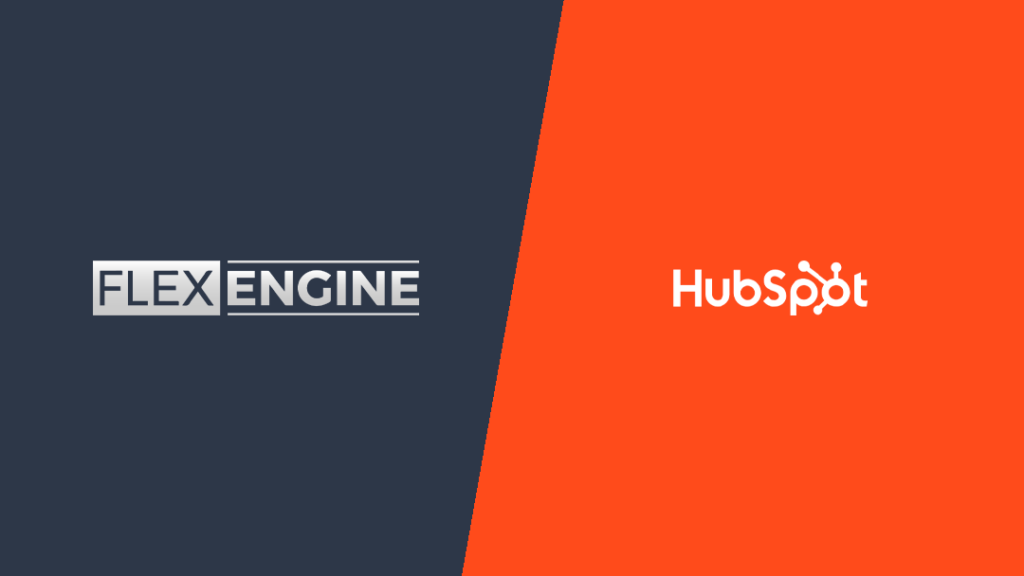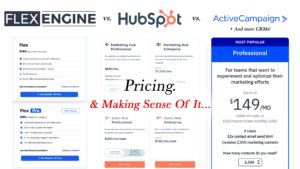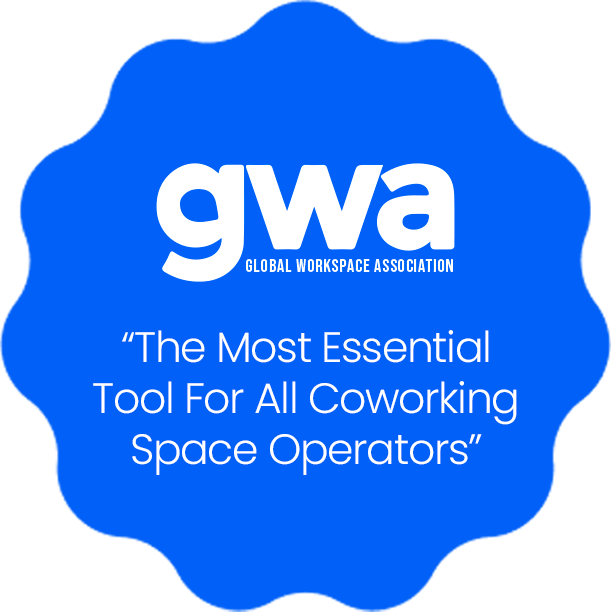In the vast realm of Customer Relationship Management (CRM) platforms, two contenders, Flex Engine and HubSpot, have emerged as formidable players, each boasting a unique set of features tailored to meet the diverse needs of businesses. This in-depth comparison aims to unravel the strengths and nuances of both platforms, shedding light on their capabilities, customization options, scalability, analytics, and more. As businesses navigate the complex landscape of CRM solutions, understanding the intricacies of Flex Engine and HubSpot becomes pivotal in making an informed choice that aligns with specific operational requirements.
Understanding Flex Engine: The All-In-One Coworking CRM Software
Flex Engine the all-in-one coworking CRM software stands as a dynamic force in the CRM landscape, renowned for its adaptive customization and advanced automation capabilities. Tailored for businesses seeking a highly personalized CRM environment, Flex Engine excels in member-centric approaches, offering robust tools for contact management, marketing automation, and space utilization. Its data fusion capability provides a holistic view of customer interactions, breaking down data silos and empowering businesses to make informed decisions.
With a focus on performance optimization, Flex Engine ensures optimal system functionality, even during peak usage, catering to the diverse needs of evolving businesses. Understanding Flex Engine is key to harnessing the full potential of modern technology. This innovative software solution combines flexibility and powerful performance optimization to meet the demands of today’s dynamic business landscape. By seamlessly adapting to changing workloads and resource requirements, Flex Engine empowers organizations to increase productivity and drive sustainable growth.
Flex Engine’s Core Principle
Providing optimal system functionality, even during peak usage. By utilizing advanced algorithms and intelligent resource management, it ensures that critical tasks are prioritized, guaranteeing a smooth and uninterrupted workflow. This capability is particularly crucial for businesses experiencing fluctuating workloads, enabling them to efficiently allocate resources and eliminate potential bottlenecks.
Moreover, Flex Engine caters to the evolving needs of businesses by dynamically adjusting its resource allocation. This adaptive approach allows organizations to scale their operations up or down seamlessly, depending on the unique requirements of their industry or market conditions. Whether it’s expanding customer demand or sudden surges in data processing, Flex Engine ensures that businesses are equipped to handle any challenge with optimal efficiency.
In conclusion, understanding and implementing Flex Engine opens up a world of possibilities for businesses striving for excellence in today’s fast-paced digital era. By providing a dynamic and flexible approach to resource management, it enables organizations to optimize their system functionality, boost productivity, and drive sustainable growth. With the ever-changing demands of modern businesses, embracing this innovative solution is essential for staying competitive and future-proofing your organization.
Adaptive Customization:
Flex Engine has positioned itself as a frontrunner in the realm of adaptive customization. Businesses leveraging Flex Engine can mold their CRM environment dynamically, allowing for seamless adaptation to evolving requirements. The platform’s strength lies in its ability to cater to businesses with unique processes, offering a high degree of flexibility in tailoring the CRM experience to match individual preferences and needs.
Unified Data Management:
One of Flex Engine’s standout features is its data fusion capability, providing a holistic view of customer interactions and breaking down data silos. This ensures that businesses using Flex Engine have comprehensive insights into member engagement and preferences, fostering a more informed decision-making process.
Scalability and Performance:
Flex Engine’s performance optimization algorithm is designed to guarantee optimal system performance, even during peak usage. This feature proves to be particularly beneficial for businesses with fluctuating workloads, ensuring a consistent and reliable CRM experience irrespective of varying demands.
Advanced Automation Capabilities:
Flex Engine sets itself apart with its advanced automation capabilities, enabling businesses to automate complex processes. While this feature offers unparalleled flexibility, it’s essential for businesses to invest time in understanding and implementing these advanced automation features effectively.
Decoding HubSpot: The Premium Software
HubSpot, a stalwart in the CRM arena, boasts versatility and scalability, accommodating businesses ranging from solo entrepreneurs to large enterprises. With a comprehensive suite spanning marketing, sales, service, and operations, HubSpot provides a unified platform for end-to-end customer relationship management. Notable features include a Free CRM, Marketing Hub, Sales Hub, Service Hub, and CMS Hub, offering a diverse range of tools for attracting, engaging, and nurturing customers. HubSpot’s user-friendly interface and well-established scalability make it an attractive choice for businesses aiming for streamlined operations, community engagement, and overall growth in the dynamic landscape of CRM solutions.
One of the most popular CRM solutions on the market today is HubSpot. With its extensive suite of tools and features, it has become a go-to option for businesses looking to effectively manage their customer relationships. But what exactly makes HubSpot so special?
First and foremost, HubSpot’s ease of use sets it apart from other CRM platforms. Its intuitive interface allows users to navigate through the system with ease, making it accessible even for those who are not tech-savvy. This user-friendly approach ensures that businesses can start utilizing the platform quickly and efficiently, without the need for extensive training.
HubSpot Marketing and Sales Tools.
From email marketing and social media management to lead generation and customer tracking, HubSpot has it all. This all-in-one approach allows businesses to streamline their operations and ensures that all customer-related activities are accounted for in one central hub.
But perhaps the most significant advantage of HubSpot is its scalability. Whether you’re a small startup or a large enterprise, HubSpot can cater to your needs. The platform offers different tiers of subscriptions, making it accessible for businesses at different stages of growth. This flexibility is crucial for organizations that want to expand their operations without the hassle of switching CRM systems.
In conclusion, HubSpot is more than just a CRM solution. Its ease of use, comprehensive toolset, and scalability make it an attractive choice for businesses aiming for streamlined operations, community engagement, and overall growth in today’s dynamic landscape of CRM solutions. So, if you’re looking for a powerful tool to take your customer relationships to the next level, consider decoding HubSpot for your business.
Versatility in Scale:
HubSpot, on the other hand, positions itself as a CRM platform designed to scale with businesses of all sizes. Whether it’s a solo entrepreneur or a large enterprise with thousands of employees, HubSpot offers a comprehensive suite of features spanning marketing, sales, customer service, operations, and content management.
Free CRM and Marketing Hub:
A standout feature of HubSpot is its Free CRM, allowing businesses to nurture and grow with customer relationship management software. The Marketing Hub within HubSpot is a robust tool designed for small to enterprise businesses, facilitating inbound marketing campaigns at scale. It includes features such as Ads Software, Google Ads integration, Exit Intent Forms, Blog Software, and Marketing Analytics & Dashboard Software.
Sales Hub Excellence:
HubSpot’s Sales Hub offers powerful sales software designed to help teams close more deals, deepen relationships, and manage pipelines effectively. It encompasses Sales Pipeline Management Software, Conversation Intelligence, Business Insights, Email Integration, and a Call Logging App.
Service Hub and CMS Hub:
The Service Hub in HubSpot is dedicated to customer service, aiming to deepen customer relationships, connect to the front office, and drive team efficiency. On the other hand, the CMS Hub focuses on content management, providing flexible solutions for marketers and developers while delivering personalized and secure experiences.
Operations Hub for Streamlined Operations:
HubSpot’s Operations Hub focuses on streamlining operations, offering programmable automation software, data sync software, data quality software, and Snowflake Data integration.
Comparative Analysis: Flex Engine vs. HubSpot
Adaptive Customization and Scalability: Flex Engine vs. HubSpot
While Flex Engine takes pride in its adaptive customization, offering businesses the ability to tailor their CRM environment dynamically, HubSpot positions itself as a versatile platform designed to scale seamlessly with businesses of varying sizes. The choice between the two depends on the specific needs and preferences of businesses – those prioritizing dynamic customization may find Flex Engine more suitable, while those emphasizing scalability may lean towards HubSpot.
Data Management and Analytics: Flex Engine vs. HubSpot
Flex Engine’s data fusion capability and holistic view of member interactions contrast with HubSpot’s emphasis on versatility, providing features like Marketing Analytics & Dashboard Software and Service & Support Analytics. The decision here hinges on whether businesses prioritize a comprehensive view of interactions or versatile analytics tools for marketing and service insights.
Scalability and Performance Optimization: Flex Engine vs. HubSpot
Flex Engine excels in performance optimization, catering to businesses with fluctuating workloads. HubSpot, on the other hand, boasts well-established scalability, ensuring growth with evolving business needs. The choice depends on the specific demands of the business – whether it requires consistent performance during peak usage (Flex Engine) or seamless scalability for future growth (HubSpot).
Automation Capabilities: Flex Engine vs. HubSpot
Flex Engine’s advanced automation capabilities offer businesses the flexibility to automate complex processes. HubSpot, meanwhile, provides a suite of automation tools across its various hubs, including Marketing Automation Software, Sales Automation Tools Sequences, and Automated Customer Service. The decision boils down to the level of automation sophistication required by the business and the ease of implementation.
Member Relationship Management vs. Comprehensive Suite: Flex Engine vs. HubSpot
Flex Engine focuses on member-centric approaches, with strengths in contact management, marketing automation, and effective space utilization. HubSpot, with its Free CRM, Marketing Hub, Sales Hub, and Service Hub, provides a comprehensive suite covering the entire customer journey. The choice depends on whether businesses prioritize specialized member-centric features or a unified suite for end-to-end customer relationship management.
Conclusion: Tailoring CRM Excellence to Specific Needs:
In the dynamic landscape of CRM solutions, both Flex Engine and HubSpot stand out as robust contenders, each with its unique strengths and capabilities. The decision between the two hinges on the specific priorities, operational nuances, and growth trajectories of businesses.
Flex Engine’s emphasis on adaptive customization, data fusion, and advanced automation makes it ideal for businesses seeking a tailored CRM environment with a focus on member-centric approaches. It suits those willing to invest time in harnessing advanced features for optimal results.
HubSpot, with its versatile scalability, comprehensive suite of hubs, and free CRM, caters to businesses of all sizes, offering an all-encompassing solution for marketing, sales, service, and operations. It becomes an attractive choice for those prioritizing a unified approach, scalability, and a wide array of features.
In the quest for CRM excellence, businesses must carefully evaluate their unique needs, growth trajectories, and preferences. Flex Engine and HubSpot emerge as powerful tools, ready to empower businesses in building and maintaining exceptional customer experiences. By aligning the CRM choice with specific goals, businesses can drive success in member engagement, space utilization, and overall business growth.





